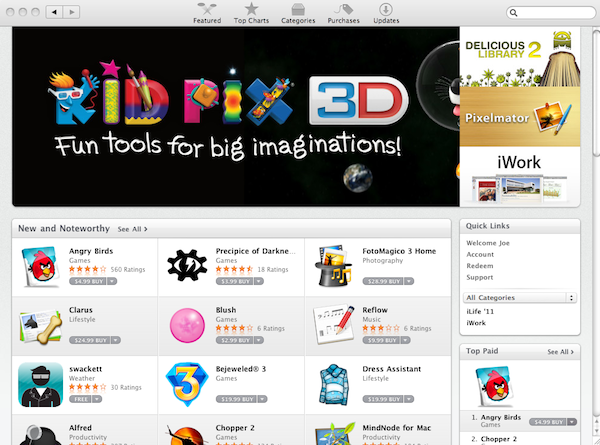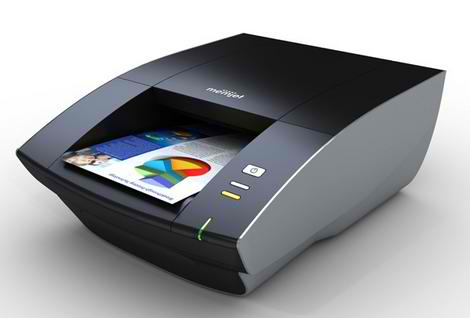
Live from CES 2011: Ford product design manager Chris Demeniuk tells all about HMI
Sean Clark, from mp3Car.ccom, interviews Chris Demeniuk from Ford about the application design process for vehicles. Simplicity, usability, and engineering with the end user in mind are all important themes when creating a Human Machine Interface.

Kinect on our PCs and set top boxes is coming...but not exactly from Microsoft
In an interview with the BBC, Microsoft CEO Steve Ballmer said the Kinect motion control interface released in 2010 for the Xbox 360 will be coming to PCs "in the right time."
But Belgian middleware company SoftKinetic might just beat Microsoft to the punch with its own white-label gesture interface for Atom-based PCs and set-top boxes.

Live from CES 2011: Visteon C-Beyond car's thermal IR responds to you
Rob Wray, from mp3Car, shows off the Visteon C-Beyond car. The center console has a thermal IR sensor that detects your hand location and opens and closes the console compartment automatically according to hand movement.
Adjustable ambient lighting can be changed based on the passenger's mood. Motion sensing lighting can aid passengers in finding lost items at night as the floor can illuminate based on hand gestures. "Vertical Air Flow" eliminates the need for conventional HVAC vents on the dash. Individual zones of the vehicle are more easily climate controlled based around circular ceiling and floor modules. A Windows PC and Centrafuse front end controls all of the technology.

Live from CES 2011: Pelagicore demonstrates Genivi Meego cross platform in-car solution
Rob Wray, from mp3Car, speaks with Mikael Soderberg, from Pelagicore, to discuss two new vehicle hardware setups.
First, the ARM processor of the Beagleboard C4 is paired with a daughterboard from Pelagicore to enable easy communication with systems in the vehicle including the MOST, CAN, & LIN protocols. AM/FM radio integration, Bluetooth and power management capabilities are also integrated.

Why Verizon won't let Apple announce iPhone
Verizon isn't taking any shit from Apple.
Late yesterday, the wireless carrier set Wall Street and the Web abuzz with invitations to a mysterious January 11 event in New York. Several Apple journalists reported receiving the invites, including veteran Mac reporter Jim Dalrymple (disclosure: we're friends, and I hope will still be after this post). The timing fits with other rumors about the imminent launch of iPhone 4 -- let's call it iPhone 4.5 for this post -- on Verizon Wireless. I say iPhone 4.5, because this isn't your daddy's GSM handset. Verizon's network is CDMA, and it's moving to LTE.

Hands-on with the world's first color E Ink reader
All of the e-readers that use legitimate "e paper" and not some other display type license their technology from the E Ink Corporation. It's the high-visibility screen technology used in the Amazon Kindle, Sony Reader, the original Nook, and many more.
Late in 2010, E Ink debuted an active matrix color E Ink technology called Triton, and Chinese manufacturer Hanvon jumped on board as the first adopter of the new screens.

Could it be iPhone really and finally is coming to Verizon?
What would another day be without somebody, somewhere having some kind of inside information -- from (gasp) unnamed, so-called reliable sources -- that the iPhone is coming to Verizon? Next year. Next month. Next week. Next day. Next minute. Two new dates have popped up -- January 11 and February 3 -- over the last 24 hours. Could it all be true this time?
January 11 is interesting if no other reason than it's closer. Today, several journalists received invitations to a special, unnamed Verizon event in New York City next week. My buddy Jim Dalrymple received an invite. He writes: "While it doesn't mention anything about Apple this could be the Verizon iPhone." TechCrunch's MG Siegler got one, too. Now there's someone who is an Apple hugger du jour.

CES 2011: Seven tablets you should know about
Some are calling the year 2011 the year of the tablet, and from the looks of what's coming out of CES this week it certainly seems the case. For much of 2010, Apple's iPad ruled the roost and sold an estimated 10 million units.
The only serious competitor to appear was Samsung's Galaxy Tab, which debuted in September and sold 600,000 units in its first month alone. The success of the Tab showed that there may be a market for an iPod competitor, which should be heartening to these new entrants.

Live from CES 2011: Foryou concept device does Froyo apps in the car
Although not available yet, the Foryou Electronics double din unit in this video features the Android 2.2 operating system. With it, a plethora of app possibilities can now exist in the vehicle, with a user interface conducive to in-vehicle use. Bluetooth, music, email, radio, internet access, and a fast processor are now all easily possible from your dash.

Live from CES 2011: Regulators boot Scosche iPad dash mount into the backseat
Scosche's front double din iPad mount will apparently never make it to market due to legal concerns. However, their new rear seat mount will. iPads continue to be a sought after solution for in-vehicle computing.

OLPC jumps ARM bandwagon with $165 laptop at CES
One Laptop Per Child, the outfit dedicated to bringing affordable computers to children in developing countries, became the latest name to jump on the ARM bandwagon as it demonstrated the latest version of its portable PC at the Consumer Electronics Show 2011 in Las Vegas.
The organisation's new XO-1.75 laptop uses an ARM-based 1GHz Armada 610 chip from Marvell Technology. It has an 8.9-inch touchscreen and uses just two watts of power - half the figure consumed by its x86-based predecessor, the XO.

Can you feel the noose, Apple? Android gains against flat US iPhone market share
What do the US market share leaders for cell phones and smartphone operating systems have in common? Android.
Yesterday, ComScore released September to November US mobile subscriber market share. Yes, I initially thought to cover it then, but there was simply too much news from the first official day of the Consumer Electronics Show. So here we are a day later.

Google admits that, for some, Android is misdirecting texts
Google admitted this week that an issue with how the Android OS handles contacts and text messaging is causing phones to sometimes randomly send or misdirect SMS messages to the wrong users. The issue was first reported in late June of last year, but was not confirmed as a legitimate bug until now.
Engineers have been able to recreate the issue, and now say that they believe the problems stem from two different issues with the Android OS. That said, the company stressed occurrences of the bug are rare, and a fix for the problem has been developed and would be released soon.

Mac App Store tops 1 million downloads during first 24 hours
Apple just won't let it go. While the rest of the industry is focused on the Consumer Electronics Show (Apple isn't there), the company keeps trying to steal other tech vendors' thunder. ;-) First, Apple launched the Mac App Store on CES 2011 Day 1. Now it's announced that Mac users downloaded 1 million apps within the first 24 hours. Yeah, but how many people paid?
"We're amazed at the incredible response the Mac App Store is getting," Apple CEO Steve Jobs said in a statement. "Developers have done a great job bringing apps to the store and users are loving how easy and fun the Mac App Store is."

The ancient art of printing gets a game changer
Memjet, the printer design company headed by former Qualcomm COO Len Lauer, made its first major partnership announcements at CES 2011 yesterday, and its staggeringly fast inkjet printers will be brought to market by Lenovo in China, WEP in India, and Kpowerscience in Taiwan. North America and Europe are sure to follow.
Why should you care about Memjet? Because most of the big announcements coming from printer companies in recent years have revolved around advances in printer communication and broadened functionality. It isn't often that a disruptive technology comes along and results in a different kind of printer.